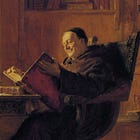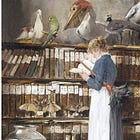For many years, I have endorsed How to Read a Book. I did this, in part, because I believed that the author, Mortimer J. Adler, shared my view that different people should read different books in different ways at different times in their lives. Recently, however, an encounter with a single sentence shook my confidence in the value of the work. “Your success in reading,” I read, “is determined by the extent to which you get all that the writer intended to communicate.”
A reader should not, of course, judge a book, especially one as long as How to Read a Book, by a single sentence. However, when I compared the offending statement with the rest of the work, I came to the conclusion that it reflected Professor Adler’s belief that, when properly read, a book is a kind of teacher. That is, the relationship between a book and its reader resembles that of master and pupil, superior and inferior.
My own advice to readers reverses the roles laid down in How to Read a Book. Rather than the playing the dutiful student, hanging on every word his teacher speaks, the reader should see himself as a kind of detective. As such, he does not limit himself to the evidence placed before his eyes, but casts his net as widely as he can, delving into the background of the author and the times in which he wrote. Furthermore, he knows that, even when a witness is trying to tell the truth (which is not always the case), he necessarily makes mistakes of perception, expression, and emphasis. Finally, he understands that there will be many occasions when the most relevant fact is the failure of the dogs to bark.
Source for Quotation: Mortimer J. Adler How to Read a Book: The Art of Getting a Liberal Education (New York: Simon and Schuster, 1940), page 26.
For Further Reading:







Deciphering what the writer actually meant is my favorite pastime while reading. In particular, hitting on hidden assumptions or things that they thought didn't need to be said that you didn't already know is a great experience.